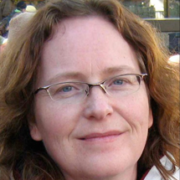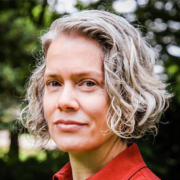Ethics Extravaganza 2017

Ethics Extravaganza 2017
June - July 2017
Our 3rd online ethics conference
Photo credit: Paul Carter, We Do It In Public. Used with permission.
Ethics Extravaganza 2017 was made up of E CERPs presentations from our conferences in the previous 18 months and a brand new presentation by Cynthia Good Mojab. iLactation offered 5.25 E CERPs for IBCLCs around the world to help satisfy the requirement for a minimum of 5 E CERPs on ethics and related topics for IBCLC recertification.

You can’t do that! Keeping your events Code compliant
Jodine Chase - Read moreYou can’t do that! Keeping your events Code compliant
Jodine Chase
Jodine Chase is a public relations and communications consultant specializing in issues and crisis management news analysis. Jodine is a long-time breastfeeding advocate who, as a volunteer, works for many breastfeeding related causes including advocating for the re-establishment of milk banks and amending policies and legislation to protect breastfeeding rights. Jodine serves on the board of her local breastfeeding advocacy group, for the Best for Babes Foundation, and volunteers with ILCA, INFACT Canada, and Friends of the WHO Code. She’s involved in many breastfeeding related events including the Miracle Milk Stroll and the Breastfeeding Challenge.
You can’t do that! Keeping your events Code compliant
You’re planning an event for World Breastfeeding Week. You’ve got a great team and lots of local support. But the gift bag coordinator says a local store wants to include a nipple cream sample. The local chiropractor coupon, is that a no? What about the milk bank info sheet, yes? Someone wants to raffle off a breast pump? Now your head is spinning. Sponsors, giveaways, brochures, how do you deal with it all while ensuring you or your group doesn’t get involved in controversy over unethical marketing and Code violations? This presentation explained how to host a Code compliant event that doesn’t contribute to predatory marketing Booby Traps that erode breastfeeding.

Ethics, culture and lactation: essential concepts and principles for lactation specialists
Cynthia Good Mojab, MS, IBCLC - Read moreEthics, culture and lactation: essential concepts and principles for lactation specialists
Cynthia Good Mojab, MS, IBCLC
Cynthia Good Mojab is an International Board Certified Lactation Consultant, author, consultant, and internationally recognized speaker. She is also Certified in Acute Traumatic Stress Management and is a member of the National Center for Crisis Management and the American Academy of Experts in Traumatic Stress. She focuses on issues related to birth, lactation, culture, psychology, ethics, and equity. Cynthia has a strong interest in the field of lactational psychology, the name of which she coined in the Journal of Human Lactation in 2006. She brings the evidence, insights, and tools of psychology and lactation consulting to her unique presentations, many of which present information and teach skills that are essential to understanding and effectively responding to the complex psychosocial realities of families living in diverse contexts. She is the Director of LifeCircle Consulting, where she provides education, training, and consultation services to individuals and organizations seeking to increase cultural competence/humility, dismantle institutional oppression, more effectively respond to perinatal mental health challenges, and engage ethically in their work. She also serves as Education Manager at the International Lactation Consultant Association. She formerly served as a mental health care provider in private practice, served as Research Associate in the Publications Department of La Leche League International, was a member of Mothering Magazine’s Expert Panel, and was on the faculty of Parkland College where she taught both statistics and abnormal psychology. She has authored, contributed to, and provided editorial review of numerous publications. She has experience working with the full spectrum of lactation in diverse contexts—from healthy, well-supported parents of healthy, full-term newborns to dyads coping with perinatal mental health issues to adoptive parents inducing lactation for nurslings with special needs.
Ethics, culture and lactation: essential concepts and principles for lactation specialists
This session introduces ethical and cultural concepts and principles that are essential for ethical decision making in cross-cultural lactation counseling and consulting settings anywhere in the world. It includes a review of cultural dimensions which impact lactation and lactation counseling and consulting; principles within the Code of Professional Conduct that mandate cultural competence; how ethical issues interact with non-universal, culturally-based values and beliefs in lactation counseling and consulting; and fundamental principles that lactation specialists must apply when working to resolve ethical dilemmas in cross-cultural settings. A case study illustrates the application of these ethical and cultural concepts and principles.

Spotlight on infant formula: why action to tackle the harmful practices of companies is needed
Alison McFadden, PhD, RM, ADM, Cert Ed - Read moreSpotlight on infant formula: why action to tackle the harmful practices of companies is needed
Alison McFadden, PhD, RM, ADM, Cert Ed
Dr Alison McFadden qualified as a midwife in 1981 and worked in clinical midwifery in England and Malawi. She qualified as a midwifery tutor in 1989, was awarded the Robert Peer’s Prize for Adult Education by the University of Nottingham, and spent 17 years lecturing in midwifery and women’s health at the Teesside University. She was awarded a Masters in Applied Educational Studies by the University of York in 1993. In 2005 she joined the Mother and Infant Research Unit at the University of York and gained a National Institute of Health Research Fellowship to undertake a PhD which was completed in 2010 at the University of York. She joined the University of Dundee as a researcher in January 2013. Dr McFadden’s research focuses on inequalities in health and nutrition for women and infants. Recently she conducted a study examining strategies to effectively influence political commitment to breastfeeding in six countries, and is involved in updating Cochrane reviews on breastfeeding to inform WHO work.
Spotlight on infant formula: why action to tackle the harmful practices of companies is needed
Based in part on research conducted in 2014, this presentation will highlight how promotion and marketing activities of breastmilk substitute companies undermine breastfeeding. More specifically it will explore challenges in implementing the International Code on Marketing of Breastmilk Substitutes providing specific examples from six countries: Bangladesh, Brazil, Indonesia, Nigeria, the Philippines and the UK. The presentation will emphasise the need for co-ordinated action to address these challenges and make suggestions for how this could be achieved.

The commercialization of human milk
Jodine Chase - Read moreThe commercialization of human milk
Jodine Chase
Jodine Chase is a public relations and communications consultant specializing in issues and crisis management news analysis. Jodine is a long-time breastfeeding advocate who, as a volunteer, works for many breastfeeding related causes including advocating for the re-establishment of milk banks and amending policies and legislation to protect breastfeeding rights. Jodine serves on the board of her local breastfeeding advocacy group, for the Best for Babes Foundation, and volunteers with ILCA, INFACT Canada, and Friends of the WHO Code. She’s involved in many breastfeeding related events including the Miracle Milk Stroll and the Breastfeeding Challenge.
The commercialization of human milk
Non-profit human milk banks in North America dispensed over 4 million ounces of human milk in 2015 for infants in need. That sounds like a lot of milk, and it is an increase of 10 fold since the turn of the century. But in the same year, two competing US companies say they processed a similar amount of milk for commercial human milk products. One says they bought 1 million ounces at $1/oz that year. And a third company that offers a web-based brokerage for private buyers and sellers claims to have 10,000 ads offering 45 million ounces of milk at any given time. A Utah-based company is paying women in Cambodia for their milk and reselling it in the US. Infant formula companies are looking to extract human milk components to enhance their products, and the for-profit trend is expanding beyond the US’s borders into Canada, Australia, and beyond. Learn more about this human milk marketplace – what are the products being sold, and how to do they compare to traditional human donor milk? What are the options for families that wish to donate or sell milk, and for those in need?

